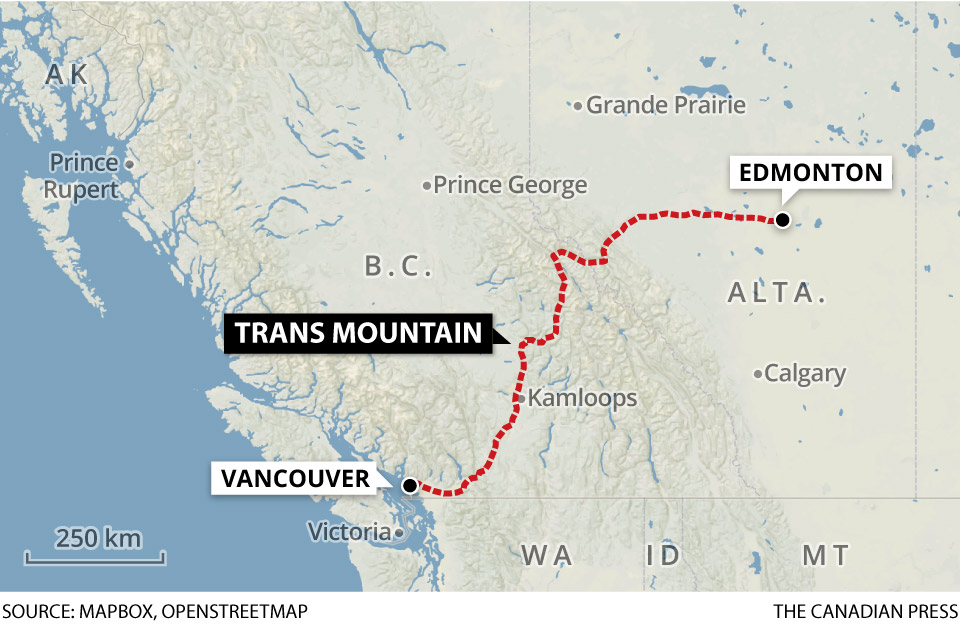The National Energy Board (NEB) has ruled in favour of the Trans Mountain pipeline, saying the company pushing the project does not have to comply with two sections of the City of Burnaby’s bylaws.

The sections had required Trans Mountain Pipeline ULC to have preliminary plans and tree-cutting permits for project-related work approved by the city, said a Thursday news release.
Trans Mountain had raised constitutional questions about those bylaws, saying they don’t apply to work that the company planned to undertake at its Burnaby Terminal, its Westridge Marine Terminal, and at a temporary worksite.
Coverage of Trans Mountain on Globalnews.ca:
With the decision in place, Trans Mountain can go ahead and start work at those sites.
However, the decision does not mean that Trans Mountain has been absolved from complying with other City of Burnaby bylaws, the NEB’s order said.
‘Abuse of federal powers’
“We believe that this is an abuse of federal powers, and city staff are shocked by the NEB’s decision,” Mayor Derek Corrigan said in a news release.
“City staff have been reviewing Kinder Morgan’s construction applications in good faith, focusing both on citizen safety and mitigation of environmental damage.”
In an interview Corrigan later said the reasons Kinder Morgan does not need to comply with the bylaws have not been provided
“And until we know what those reasons are, our lawyer can’t advise us as to what we should do next. You know, whether this is very limited or whether it’s a broad decision that will apply in other cases. So it’s a difficult situation to make any judgement about what we’ll do next, if in fact we don’t know what the reasons are behind it.”
“We’re still fighting hard and trying to gain control, at least control over what’s happening in this project so that we can minimize the environmental damage,” he said.
The $7.4-billion project will expand an existing 1,150-kilometre pipeline between Edmonton and Burnaby.
The proposal was first put forward in 2013.
The National Energy Board (NEB) approved the expansion in 2016, subject to 157 conditions.
WATCH: Global News ongoing coverage of the Trans Mountain pipeline expansion project
The project will involve 980 kilometres of new pipeline, 12 new pump stations and 20 new tanks.
The new line will carry heavier oil, known as bitumen, diluted with a chemical condensate and pump close to 900,000 barrels a day. This would almost triple its current capacity.
The pipeline proposal has prompted opposition from environmentalists, First Nations, and the British Columbia’s NDP government.
LISTEN: Kent Fellows weighs in on Calgary Today
Alberta Premier Rachel Notley was “very pleased” with the decision.
“It probably means that the NEB has accepted our argument that of course this is a project that is in the national interest, and as a result we can’t have individual jurisdictions interfering with it,” she said.
“There’s not a road, there’s not a bike lane, there’s not a hospital, there’s not a school anywhere in Canada that doesn’t owe something to a strong energy industry in Canada.”
Ian Anderson, the president of pipeline proponent Kinder Morgan Canada, said, “We are pleased with the decision we have received from the NEB today.”
Also happy with the decision? Tim McMillan, president and CEO of the Canadian Association of Petroleum Producers (CAPP).
He noted that it shows federal permits will “not be delayed at the local level.”
~With files from The Canadian Press


















Comments